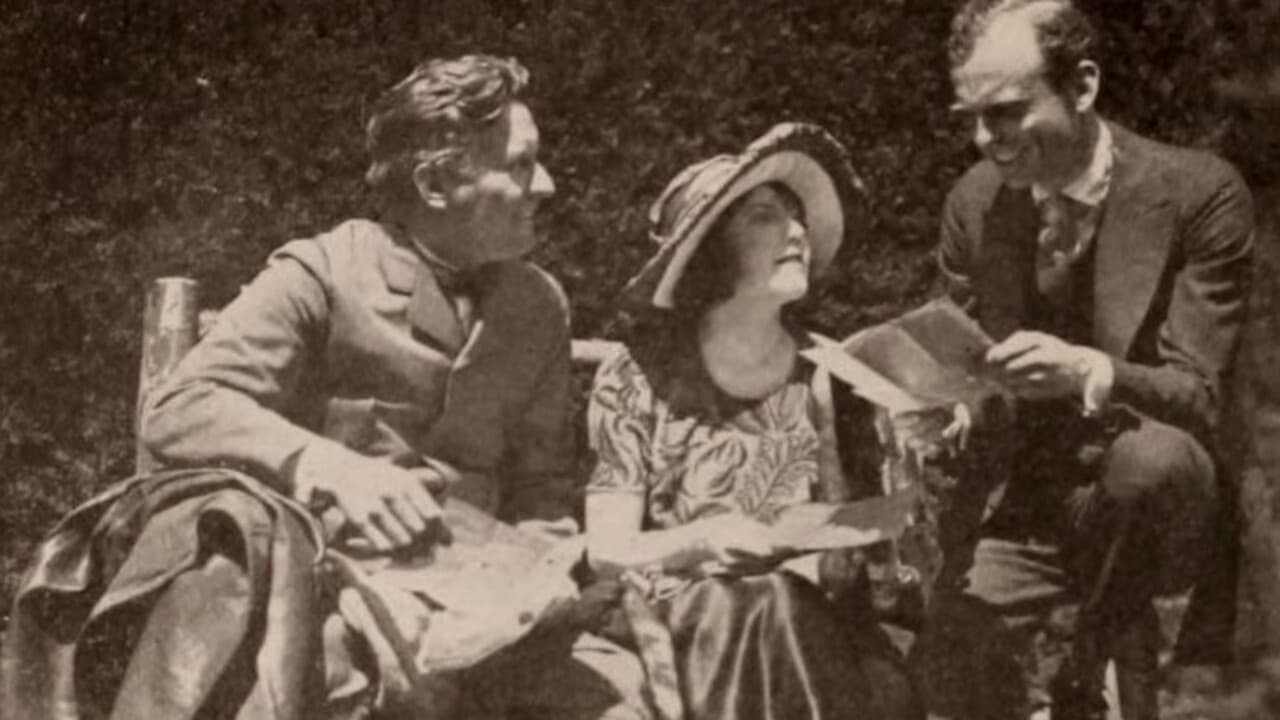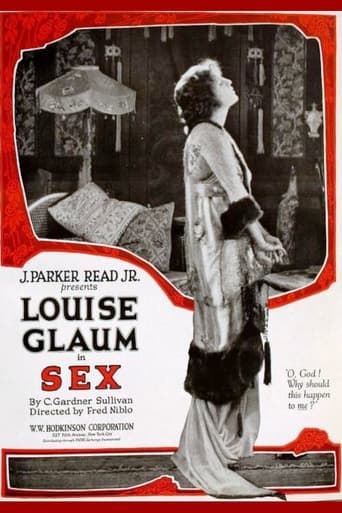

Wonderful character development!
... View MoreWhat makes it different from others?
... View Moreif their story seems completely bonkers, almost like a feverish work of fiction, you ain't heard nothing yet.
... View MoreYes, absolutely, there is fun to be had, as well as many, many things to go boom, all amid an atmospheric urban jungle.
... View MoreI think anyone with an interest in cinema history and also with genuine appreciation of early films (not inclined that is to think in terms, now thankfully outmoded, of waxwork actors and "silent relics") will be impressed with how good this film is and will be surprised it is so little known.It follows in some ways in the lineage of the classic Theda Bara vamp film of 1914, A Fool There Was, but that film, by contrast, is rather over-rated on account of its historical importance and is a much less believable account of a vamp (Yevgeny Bauer's 1914 Ditya bolshogo goroda/Child of a Big City is a rather better film on the same subject). But both these films portray the "vamp" as a horror (A Fool There Was following Kipling's somewhat mysogynist poem), even if the Bauer, unlike the Bara film, does place the behaviour of the woman in a believable social context.Glaum's vamp in this film is a much more sympathetic character. She is for a start as much victim as predator, an aspect that had come to the fore in later in more nuanced versions of the vamp (Pastrone's Tigre Real 1916 for instance is already a case in point). In fact Glaum is less like a vamp here and more like the quasi-feminist heroines of some films of the early thirties (the 1933 Baby Face is probably the best) before the more formal enforcement of the Hays Code made it rather more difficult to portray "immoral" women as simply individuals battling to survive in an unequal world (from a point of view both of class and gender).The film is framed as an "exploitation" film (and the producer Paker Read was already something of a specialist) but this is already a device necessary, particularly in US films, to avoid censorship. Which it did very successfully in this case. The film met with a bit of flack but received rave notices with the papers carefully utilising the supposed "moral" aspect of the film to justify it while at the same time praising the honesty of Read's approach. One can find a very interesting sample of these reviews in the appropriate Wikipedia entry.Finally praise for the mise en scène which is unusually good for a US film of this period (reminiscent of the more "realist" Italian films of the period). There is a fine scene for instance where Daisy, the vamp's naive protégée, is in the foreground watching events unfold amongst the triangle of main characters deep in the background, two rooms beyond. The copy that I saw is rather poor and this is a film that could certainly do with sympathetic restoration in which case I do not doubt it would be regarded as rather more of a classic than a relic.As for the ending of the film, it is rather truer to life than those of the thirties films where reform after marriage is its own romantic reward. Here the more melodramatic possibilities are sensibly avoided, the vicious circle is well portrayed and there are worse punishments than being a lonely but wealthy woman cruising around the world.Fred Niblo is an undeservedly forgotten direct, responsible five years later for quite the best film version of the Lew Wallace novel Ben-Hur.
... View MoreLouise Glaum is pretty much forgotten today. Despite a less than glamorous name, she plays the lead--a nightclub performer who LOVES to seduce married men. She seems heartless and selfish. Eventually, however, this vamp marries a very rich man and is surprised to see how much she enjoys domestic life. However, her beloved husband, Dick, begins cheating on her--with one of the dancers that Glaum instructed on how to be an über-vamp! Talk about irony.All in all, this is a very good silent film with a nice moral lesson. So, despite the very salacious title, the film is actually a nice endorsement of fidelity...though like so many of the Pre-Code films, it takes a long time getting there and glories adultery in the process! Apart from the interesting story, I also really loved the costumes. Seeing Glaum wearing a spidery outfit as she performs was a hoot! My only reservation is the very end--it looks as if perhaps part of the film is missing and they just tacked a very moralistic intertitle card there to try to hide this.
... View MoreLouise Glaum (as Adrienne Renault) is a nightclub "Vamp" who enjoys carefree sex with the married men who come to see her dance at New York's gayest midnight frolic club - "The Frivolity". As the film opens, Ms. Glaum is having a satisfying affair with William Conklin (as Philip Overman); he is stepping out on lonely wife Myrtle Stedman (as Mrs. Overman) to see Glaum perform her sensational "Spider Dance". Glaum has taken new "Frivolity" club beauty Peggy Pearce (as Daisy Henderson) under her wing - taking her to parties and sharing her "you only live once" philosophy. Glaum wants Ms. Pearce to avoid "fly-by-nights", and hook up with a wealthy married man. Well - wouldn't you know it, but, very soon, the frivolous Glaum gets that "nest-building" urge! She finds Irving Cummings (as Dick Wallace), and settles down. Men being men, Glaum soon finds herself sitting home alone, while Mr. Cummings steps out to "The Frivolity" and finds a mistress - who can she be? The luridly titled "Sex" is really an old-fashioned morality story; specifically, it preaches, "The standards of morality eternally demand that the naked soul of Sex be stripped of its falsehoods - which can only be atoned for through bitter tears." Satan even makes a cameo appearance; laughing at Glaum as she parties with Cummings, the devil knows what is in store for the couple! Note, however, that the film offers hope for redemption, as evidenced in its extended coverage of Mr. and Mrs. Overman's storyline.Glaum is great as the "Partying Mistress" turned "Dutiful Wife" - she is very convincing, in a wide ranging role. Watch for the scene where Glaum discovers the identity of her husband's mistress; it's an expertly performed silent scene. The supporting cast is also effective - Pearce (aka Viola Barry) and Cummings (later, a successful director) playing well opposite Glaum. And, Fred Niblo directed "Sex" with a sure touch. Despite its strengths, however, the styles and situations on-screen make the film seem more like a silent relic than a silent classic. ****** Sex (3/29/20) Fred Niblo ~ Louise Glaum, Irving Cummings, Viola Barry
... View MoreThis film was released on VHS by Grapevine Video Inc. in the 1990's but seems to be no longer in stock. The print is a little fuzzy but does not suffer from nitrate decomposition.Despite the enticingly frank title this is actually a morality tale of a woman who is done to as she has done unto others. The costumes and sets are deliriously bizarre and outré and the direction solid. Miss Glaum, a Theda Bara competitor, is a solid and attractive actress who seems a touch wholesome compared to more recent screen hussies. Whereas Theda Bara seems to have played women who were beyond redemption, Glaum does succumb to the lure of marital contentment only to discover that her former protegé has snagged her rich, indolent playboy husband. Ms. Glaum in her full vamp mode wears a lot of loose, off the shoulder gowns, smokes up a storm and knocks down alcoholic beverages with gusto. Except for some smooching and a few legs on the lap, not much of the titular activity is seen on the screen though heavily implied.
... View More